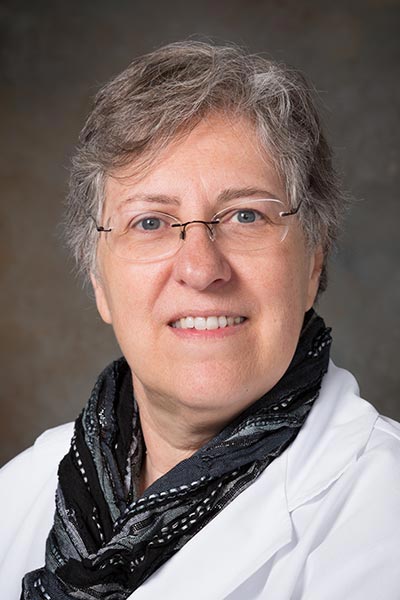Researchers discuss efforts to speed drug approval process by rethinking phase I trials
Phase I trials are changing. Once focused on determining safety and maximum tolerated dose, they are now also used to demonstrate proof-of-mechanism and proof-of-concept.
Three experienced investigators discussed the evolution of phase I trials on Tuesday, April 18, during the symposium Future of Phase I Clinical Trials, which can be viewed on the virtual meeting platform by registered Annual Meeting participants through July 19, 2023.

“Discovering new medicines gets more and more expensive. In the 1940s and 1960s, $1 billion bought 30 new drugs. In 2020, $1 billion bought you, maybe, one new drug. This is unsustainable,” said Vivek Subbiah, MD, Associate Professor of Investigational Cancer Therapeutics, Executive Director of Medical Oncology Research, and Medical Director of the Clinical Center for Targeted Therapy at The University of Texas MD Anderson Cancer Center.
The key to more efficient drug development, testing, and approval lies in combining insights from metabolomics, transcriptomics, immunogenomics, genomics, microbiomics, proteomics, and other areas, Subbiah said. Rather than developing tissue-specific treatments for lung or colorectal cancer, the goal is to develop tumor-agnostic treatments that focus on the specific molecular alteration targeted by the drug, he said.
The 2017 tumor-agnostic approval of pembrolizumab for solid tumors is a harbinger of approvals to come, he said. One example is the approval of selpercatinib, which was first given as compassionate use in a single patient who had RET mutations and whose disease progressed after six previous treatments. Selpercatinib was approved three years later based on a phase I/II trial in 144 patients.
“This should be the pattern for new drugs — tissue-agnostic, cancer-agnostic, line agnostic,” Subbiah said. “N-of-1 trials are a departure from the traditional drug-centric model to a patient-centric model and can fast-track cancer drug development, especially in rare tumor types. Our patients cannot wait.”
Antibody-drug conjugates (ADC) are like a magic bullet — an antibody that targets specific tumor cell-surface receptors to enable delivery of a cytotoxic payload inside the target cell.

Patricia M. LoRusso, DO, PhD (hc), Professor of Medicine and Associate Center Director of Experimental Therapeutics at Yale Cancer Center, explained that ADCs have four key components: a highly selective monoclonal antibody, conjugation chemistry that controls drug distribution, a linker to selectively release the drug in the target cell, and a cytotoxic payload.
Phase I trials are ideal for tweaking ADCs to reduce toxicity and increase efficacy, she said. Response-guided dosing can reduce toxicity while maintaining efficacy, she added, while randomized dose-finding studies can demonstrate efficacy across multiple dose levels.
“We have to listen to the data, pay attention to the safety signals, and be ready to amend and adapt protocols accordingly,” LoRusso said. “And we have to work together. Clinicians and scientists need to hold hands as we move into the future.”
Phase I trials also play a vital role in the development of immunotherapy agents, as researchers gain a better understanding of cellular interactions that contribute to cellular immunity.

“Immunotherapy agents are coming into earlier and earlier stages of disease,” said Shivaani Kummar, MD, the DeArmond Endowed Chair of Cancer Research, Co-director of the Center for Experimental Therapeutics, and Deputy Director for Clinical & Translational Research at the Knight Cancer Institute at Oregon Health & Science University. “We are seeing durable responses, but there remains a large percentage of patients who do not respond. That must change.”
One approach is to rethink anti-cancer drug development, starting with phase I trials.
“You can come up with a maximum tolerated dose for almost anything,” Kummar said. “The objective is to come up with something that is efficacious and tolerable. We must recognize that forward- and reverse-translation are complementary and phase I is the place to do it. The old linear model of moving forward and failing later is not serving us or our patients.”
More from the AACR Annual Meeting 2025
View a photo gallery of scenes from Chicago, continue the conversation on social media using the hashtag #AACR25, and read more coverage in AACR Annual Meeting News.

